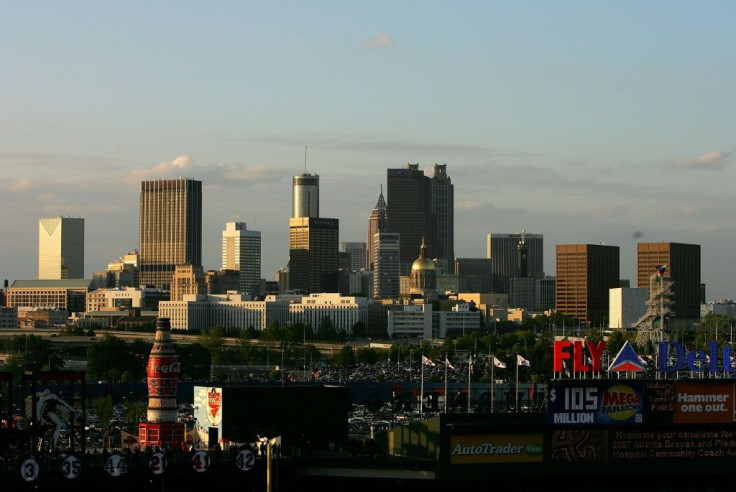Georgia Secretary Of State, House Speaker Open Investigations Into Voting Problems During Primary

KEY POINTS
- Georgia Secretary of State Brad Raffensperger and House Speaker David Ralston opened investigations into voting problems reported during Tuesday's primary
- Atlanta Mayor Keisha Bottoms reported long lines outside some polling centers in the city shortly after opening around 7 a.m.
- Black rights activist LaTosha Brown said the problems seem to be dis-proportionally affecting black voters
The Georgia Secretary of State and House Speaker called for investigations into voting problems after long lines and delays greeted residents for Tuesday’s primary. Atlanta Mayor Keisha Bottoms spoke about the delays on Twitter shortly after polls in the city opened around 7 a.m.
This seems to be happening throughout Atlanta and perhaps throughout the county. People have been in line since before 7:00 am this morning. https://t.co/l28JvxhZxi
— Keisha Lance Bottoms (@KeishaBottoms) June 9, 2020
Georgia Secretary of State Brad Raffensperger voiced his frustrations with the delays and said his office has already started investigating.
“The voting situation today in certain precincts in Fulton and DeKalb counties is unacceptable,” Raffensperger said in a statement. “My office has opened an investigation to determine what these counties need to do to resolve these issues before November's election.”
Georgia House Speaker David Ralston echoed Raffensperger and had the House Governmental Affairs Committee open its own investigation into the voting problems. It will primarily focus on the problems in Fulton County, one of the most populous counties.
“The sanctity of our elections -- being free and fair -- is the very foundation of our system of government. Our elections must be efficient and voters must be confident that their votes will be properly counted,” Ralston said in a statement. “The legislative branch of government has an obligation to go beyond the mutual finger-pointing and get to the truth and the real reasons underlying these frustrations and concerns.”
Some have questioned if race is playing a part in the problems, as many areas experience delays are predominantly black neighborhoods. Political analyst Laura Barrón-López said on Twitter that black activist LaTosha Brown waited three hours in her neighborhood to vote, but saw people “strolling in” to a voting location in an Atlanta suburb that’s predominantly white.
Took @MsLaToshaBrown 3hrs to vote today in GA. Then Brown drove over to predominantly white polling site in Atl suburbs
— Laura Barrón-López (@lbarronlopez) June 9, 2020
“I come over to this side of town, and white folks are strolling in. On my side of town, we brought stadium chairs.”https://t.co/lhIAaHrAlC
W/@ZachMontellaro
The state's 2018 gubernatorial election also drew controversy. Republican candidate and then-Secretary of State Brian Kemp faced allegations of voter suppression after defeating Democratic candidate Stacey Abrams in a tight election. Abrams made a point of not conceding and sued the state voter purges, registration applications put on hold, among other voter irregularities.
The state ethics commission filed a countersuit in 2019, saying the Abrams campaign hadn’t provided all relevant communication and bank records.
© Copyright IBTimes 2025. All rights reserved.





















